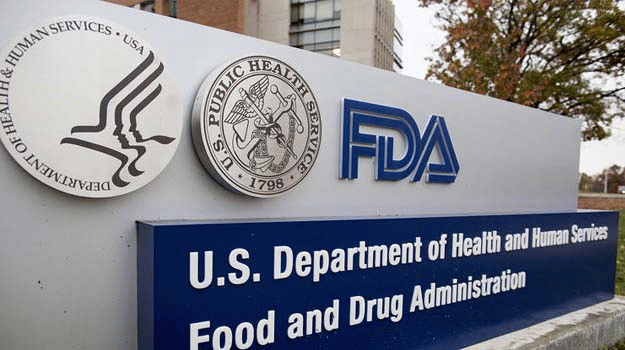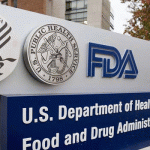FDA approves remdesivir as the first treatment for COVID-19 despite WHO-sponsored study that shows remdesivir FAILED to prevent COVID-19 deaths and did NOT lower mortality rate in a multinational trial

Last week, we wrote about Gilead’s remdesivir (Veklury) after a new study of more than 11,000 people in 30 countries sponsored by the World Health Organization (WHO), found that remdesivir failed to prevent COVID-19 deaths in huge a trial. The study finds that the antiviral drug remdesivir has little or no effect on mortality for patients hospitalized with COVID-19 and failed to lower the mortality rate in a multinational trial.
Based on their findings, the team of scientists wrote:
“These Remdesivir, Hydroxychloroquine, Lopinavir and Interferon regimens appeared to have little or no effect on hospitalized COVID-19, as indicated by overall mortality, initiation of ventilation and duration of hospital stay.”
Now in a new stunning development, the Food and Drug Administration (FDA) announced today it has “approved the antiviral drug Veklury (remdesivir) for use in adult and pediatric patients 12 years of age and older and weighing at least 40 kilograms (about 88 pounds) for the treatment of COVID-19 requiring hospitalization.”
FDA added that that remdesivir should only be administered in a hospital or in a healthcare setting capable of providing acute care comparable to inpatient hospital care. FDA said that the approval does not include the entire population that had been authorized to use Veklury under an Emergency Use Authorization (EUA) originally issued on May 1, 2020.
“In order to ensure continued access to the pediatric population previously covered under the EUA, the FDA revised the EUA for Veklury to authorize the drug’s use for treatment of suspected or laboratory confirmed COVID-19 in hospitalized pediatric patients weighing 3.5 kg to less than 40 kg or hospitalized pediatric patients less than 12 years of age weighing at least 3.5 kg. Clinical trials assessing the safety and efficacy of Veklury in this pediatric patient population are ongoing,” FDA said in a public release.
“The FDA is committed to expediting the development and availability of COVID-19 treatments during this unprecedented public health emergency,” said FDA Commissioner Stephen M. Hahn, M.D. “Today’s approval is supported by data from multiple clinical trials that the agency has rigorously assessed and represents an important scientific milestone in the COVID-19 pandemic. As part of the FDA’s Coronavirus Treatment Acceleration Program, the agency will to continue to help move new medical products to patients as soon as possible, while at the same time determining whether they are effective and if their benefits outweigh their risks.”
The agency also went on social media to promote the drug. In a Twitter post, FDA said:
“Today, we gave the first FDA approval for a #COVID19 treatment. The drug was approved for adults and children ages 12 and older for the treatment of #COVID19 requiring hospitalization. https://fda.gov/news-events/press-announcements/fda-approves-first-treatment-covid-19”
Today, we gave the first FDA approval for a #COVID19 treatment. The drug was approved for adults and children ages 12 and older for the treatment of #COVID19 requiring hospitalization. https://t.co/4qSSX0H5yP pic.twitter.com/TUdqdGC4xO
— U.S. FDA (@US_FDA) October 22, 2020
On April 16, Gilead reported that early trial results from Remdesivir testing showed the drug to be effective in treating coronavirus patients in Chicago hospital. Then on April 23, an independent report from Financial Times, citing documents accidentally published by the World Organization, found that Remdesivir failed in a clinical trial. The report showed that Gilead Sciences’ remdesivir flopped in a Chinese trial aimed at treating coronavirus patients. The study found that Remdesivir did not improve patients’ condition or reduce the coronavirus pathogen in their bloodstream. In June, Gilead said it would make remdesivir at a cost $3,120 per U.S. patient.
Below is the Abstract of the WHO-sponsored study.
BACKGROUND WHO expert groups recommended mortality trials in hospitalized COVID-19 of four re-purposed antiviral drugs. METHODS Study drugs were Remdesivir, Hydroxychloroquine, Lopinavir (fixed-dose combination with Ritonavir) and Interferon-β1a (mainly subcutaneous; initially with Lopinavir, later not). COVID-19 inpatients were randomized equally between whichever study drugs were locally available and open control (up to 5 options: 4 active and local standard-of-care). The intent-to-treat primary analyses are of in-hospital mortality in the 4 pairwise comparisons of each study drug vs its controls (concurrently allocated the same management without that drug, despite availability). Kaplan-Meier 28-day risks are unstratified; log-rank death rate ratios (RRs) are stratified for age and ventilation at entry. RESULTS In 405 hospitals in 30 countries 11,266 adults were randomized, with 2750 allocated Remdesivir, 954 Hydroxychloroquine, 1411 Lopinavir, 651 Interferon plus Lopinavir, 1412 only Interferon, and 4088 no study drug. Compliance was 94-96% midway through treatment, with 2-6% crossover. 1253 deaths were reported (at median day 8, IQR 4-14). Kaplan-Meier 28-day mortality was 12% (39% if already ventilated at randomization, 10% otherwise). Death rate ratios (with 95% CIs and numbers dead/randomized, each drug vs its control) were: Remdesivir RR=0.95 (0.81-1.11, p=0.50; 301/2743 active vs 303/2708 control), Hydroxychloroquine RR=1.19 (0.89-1.59, p=0.23; 104/947 vs 84/906), Lopinavir RR=1.00 (0.79-1.25, p=0.97; 148/1399 vs 146/1372) and Interferon RR=1.16 (0.96-1.39, p=0.11; 243/2050 vs 216/2050). No study drug definitely reduced mortality (in unventilated patients or any other subgroup of entry characteristics), initiation of ventilation or hospitalisation duration.
CONCLUSIONS These Remdesivir, Hydroxychloroquine, Lopinavir and Interferon regimens appeared to have little or no effect on hospitalized COVID-19, as indicated by overall mortality, initiation of ventilation and duration of hospital stay. The mortality findings contain most of the randomized evidence on Remdesivir and Interferon, and are consistent with meta-analyses of mortality in all major trials. (Funding: WHO. Registration: ISRCTN83971151, NCT04315948)




